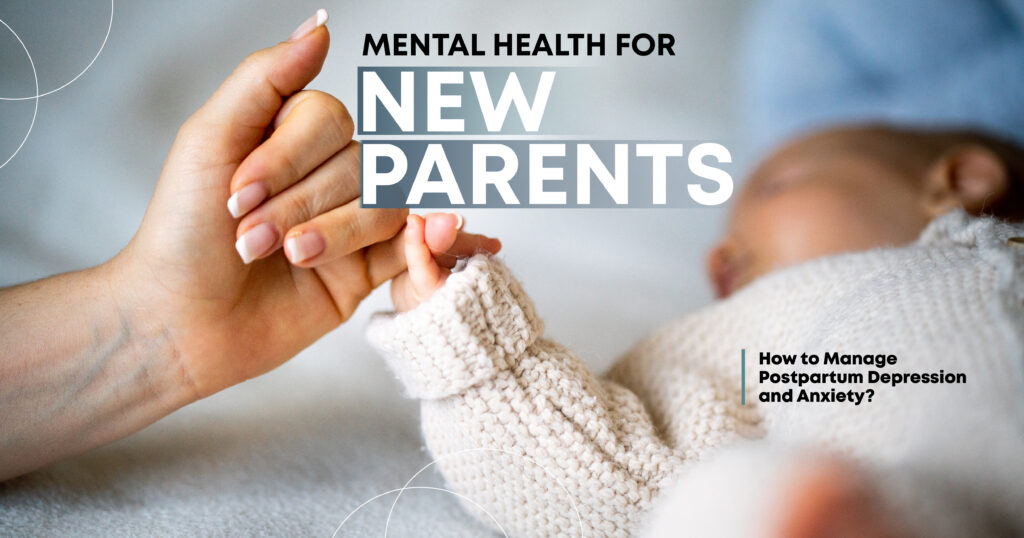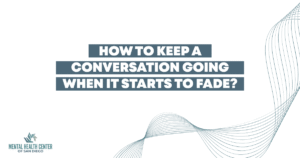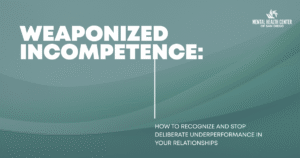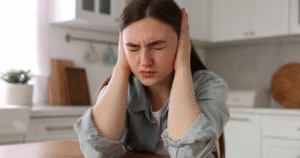Being a parent can be an experience of a lifetime, filled with great joy and excitement, not to mention the immense love for your baby. However, all the mental aspects connected to parenting may easily become overwhelming. If you are a new parent, you might feel sad, anxious, isolated, or at times all three. These can all affect your mental well-being.
Throughout this article, we will be focusing on PPD and anxiety: what they are, how they come along, and most importantly, how to cope with them for a healthier and happier transition into parenthood.
Understanding Postpartum Depression and Anxiety
Mental Health Center of San Diego
What Is Postpartum Depression (PPD)?
Postpartum Depression is more than the “baby blues.” Although many new parents feel mood swings and sadness shortly after delivery, PPD is more serious and longer lasting. The American Psychological Association estimates that 15% to 20% of women experience PPD after childbirth. Symptoms can include:
- Persistent sadness or low mood
- Feelings of worthlessness or guilt
- Loss of interest in activities once enjoyed
- Not being able to focus or make decisions
- Changes in appetite
- Changes in sleep patterns
PPD can start within weeks of delivery and can last for several months if not treated. Knowing these symptoms is essential to identify them in yourself or your partner.
What Is Postpartum Anxiety?
Anxiety after childbirth often accompanies PPD and can make new parents feel like they can never relax. Characterized by excessive fear and apprehension that interferes with daily functioning, symptoms of Postpartum Anxiety can also include:
- Insistent worrying about the health and safety of the baby
- Panic attacks or racing heart
- Restlessness or inability to relax
- Irritability and mood swings
It should be considered, however, that Postpartum Anxiety is just as crippling as Postpartum Depression, but this condition usually goes undiagnosed.
Why Do They Occur?
Many reasons influence the coming of Postpartum Depression and anxiety. Extreme changes in the level of hormones after childbirth play a major role. These physical and emotional stresses involved in tending the newborns and hormonal fluctuations may be overwhelming for some people. Everyday stressors associated with a new baby include:
- Sleep deprivation
- Major life changes
- Pressure to be the “perfect” parent
All of these can bring on feelings of inadequacy, which may be contributing factors to the development of PPD and anxiety. Remember, these feelings are in no way an indicator of your ability as a parent but, rather, a response to the overwhelming stress of a major life adjustment.
Signs and Symptoms to Watch For
Recognizing PPD Symptoms
Awareness of the symptoms of Postpartum Depression can help you or someone you care about seek help sooner. Common emotional signs include:
| Symptom | Description |
| Persistent Sadness | A feeling of hopelessness or emptiness that lingers beyond the first few weeks. |
| Irritability | Becoming easily frustrated or angry, often over minor issues. |
| Lack of Interest | No longer enjoying activities that once brought joy, including time with the baby. |
Physical symptoms may also be present, such as:
| Symptom | Description |
| Fatigue | Feeling exhausted, even after getting enough sleep. |
| Appetite Changes | Eating more or less than usual leads to weight gain or loss. |
Recognizing Anxiety Symptoms
Postpartum Anxiety can manifest differently than depression. Emotional symptoms to watch for include:
| Symptom | Description |
| Excessive Worry | Constantly worrying about the baby’s well-being or your parenting abilities. |
| Panic Attacks | Experiencing sudden feelings of terror, with a racing heart or shortness of breath. |
Physical signs may include:
| Symptom | Description |
| Restlessness | Feeling unable to relax or calm down. |
| Difficulty Sleeping | Finding it hard to settle your mind, even when your baby is sleeping. |
The Importance of Seeking Help
Breaking the Stigma
There’s a significant stigma surrounding mental health, especially for new parents. Many believe that asking for help reflects weakness or inadequacy. However, seeking support is a sign of strength and courage. Remember, millions of new parents experience Postpartum Depression and anxiety, and reaching out for help can lead to positive change.
When to Seek Professional Help?
It’s essential to recognize when professional help is necessary. If you’re experiencing:
- Persistent sadness or anxiety that doesn’t improve
- Difficulty functioning in daily life
- Thoughts of harming yourself or your baby
Please contact a mental health professional or your healthcare provider. Early intervention can lead to more effective treatment and a quicker recovery.
Practical Tips for Managing Postpartum Depression and Anxiety

Managing Postpartum Depression and anxiety involves self-care, support, and effective coping strategies. Here are some practical tips that can help.
Self-Care Strategies
Self-care is vital for maintaining mental health, especially for new parents. Here are some ways to prioritize self-care:
| Self-Care Tip | Description |
| Prioritize Sleep | Try to nap when your baby sleeps. Even short naps can help improve your mood despite the challenges. |
| Eat Well | A balanced diet can positively affect your mood and energy levels. Aim for a mix of fruits, vegetables, whole grains, and proteins. |
| Get Moving | Like walking with your baby in a stroller, gentle exercise can boost endorphins and improve your mood. |
Building a Support System
Creating a supportive environment is crucial for managing mental health. Here’s how you can build your support network:
| Strategy | Description |
| Communicate Your Needs | Don’t hesitate to tell friends and family what you need. Whether it’s someone to listen to, help with chores, or share a laugh, asking for help is okay. |
| Join a Support Group | Connecting with other new parents can provide a sense of Community. Look for local or online support groups to share experiences and advice. |
Mental Health Center of San Diego
Mindfulness and Relaxation Techniques
Incorporating mindfulness and relaxation techniques into your routine can help alleviate anxiety and stress. Here are a few techniques to try:
| Technique | Description |
| Deep Breathing | When you start to feel anxious, practice deep breathing: inhale slowly through your nose, hold for a moment, and exhale through your mouth. |
| Mindfulness Meditation | Dedicate a few minutes each day to mindfulness meditation. Focus on your breath, allowing thoughts to come and go without judgment. |
| Progressive Muscle Relaxation | Tense and then relax different muscle groups, starting from your toes and working up to your head. This helps release physical tension. |
Partner Support: Helping Each Other
Recognizing Your Partner’s Struggles
If you’re a partner of someone experiencing Postpartum Depression or anxiety, being aware of the signs is crucial. Look for:
- Changes in mood or behavior
- Withdrawal from social activities
- Increased irritability or frustration
Being attentive to these changes can help you provide the necessary support.
Effective Communication
Communication is key to supporting each other during this challenging time. Here are some tips:
| Tip | Description |
| Open Discussions | Encourage your partner to share their feelings and thoughts. Listen without judgment and validate their feelings. |
| Check-In Regularly | Make it a habit to check in about how you’re feeling. Simple questions like, “How was your day?” can open up conversations. |
Joint Activities to Boost Well-Being
Participating in activities together can strengthen your bond and provide mutual support. Consider:
| Activity | Description |
| Taking Walks Together | Fresh air and light exercise can help both of you feel better. |
| Cooking Together | Preparing a meal together can be a fun way to connect and ensure you’re both eating well. |
Professional Treatments Available
There are professional treatments to help cope with Postpartum Depression and anxiety when self-care strategies and support from loved ones are inadequate.
Therapy Options
Therapy can provide a safe space to explore feelings and develop coping strategies. Consider the following types of therapy:
| Type of Therapy | Description |
| Cognitive Behavioral Therapy (CBT) | Helps individuals identify negative thought patterns and replace them with healthier thoughts. |
| Support Groups | Joining a support group can provide a sense of community and shared experience, validating feelings and offering new perspectives. |
Medication
For some, medication may be required to manage symptoms effectively. You should discuss this with your healthcare provider, as options vary. Some typical medications for Postpartum Depression and anxiety include:
| Type of Medication | Description |
| Antidepressants | Help balance chemicals in the brain that affect mood. |
| Anti-anxiety Medications | May be prescribed to help manage severe anxiety symptoms. |
Resources for New Parents
Having access to resources can make a significant difference in managing postpartum mental health. Here are some valuable resources to consider:
Hotlines and Support Groups
- Postpartum Support International: This organization offers a helpline and a wealth of resources for new parents dealing with Postpartum Depression and anxiety.
- National Suicide Prevention Lifeline: If you or someone you know is in crisis, please reach out for immediate support at 1-800-273-TALK (1-800-273-8255).
Books and Online Resources
Reading can be a comforting way to learn more about postpartum mental health. Here are a few recommended books:
- “The Postpartum Husband: Practical Solutions for Living with Postpartum Depression” by Karen Kleiman and Mike Kleiman
- “This Isn’t What I Expected: Overcoming Postpartum Depression” by Karen R. Kleiman and Valerie Davis Raskin
Online resources can also provide valuable information and support:
- Postpartum.net: A wealth of articles, resources, and a supportive community for new parents.
- Motherhood Center: Offers resources and support for new parents dealing with mental health issues.
Personal Stories and Testimonials
Hearing from others who have faced Postpartum Depression and anxiety can provide comfort and inspiration. Here are a few stories shared by new parents:
- Sarah, 32: “After my son’s birth, I felt like I was in a fog. I couldn’t connect with him, and it terrified me. When I finally reached out for help, it changed everything. Therapy helped me see that I wasn’t alone and that it was okay to ask for support.”
- Mark, 28: “I didn’t realize my wife was struggling with Postpartum Depression until she opened up to me. It was a tough conversation, but it brought us closer. We started attending a support group together, which helped us both feel less isolated.”

Mental Health Center of San Diego
A Journey Worth Taking
Navigating the world of parenthood can be both beautiful and challenging. If you happen to be suffering from Postpartum Depression or anxiety, just know you are not alone. The key to managing these conditions and embracing the greatest joys of parenthood lies in awareness, support, and having the right tools.
At the start of this journey, remember to take good care of yourself, seek the necessary support, and communicate with your partner. This is a big adjustment, but with patience and understanding, you can provide a healthy and happy environment for everyone involved.
If you or someone you know is struggling, please don’t hesitate to ask for help. It is together that the stigma ascribed to mental health can be broken down and a supportive community built for new parents everywhere.









